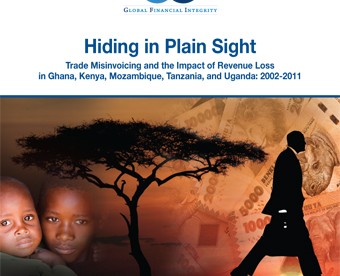By Michele Fletcher, July 18, 2014

More Transparency and Accountability Are Needed, if Tanzania Is to Truly Benefit from its New-Found Gas Reserves
Tanzania’s new-found gas reserves are valued at an estimated $20 billion. Many look at these prospects with optimism, as this revenue may help Tanzania achieve its goal of becoming a middle-income country by 2025. But for others, the situation is more precarious.
Tanzania has been in the same situation when it became a major source of gold not even two decades ago. Today, though Tanzania is still the third largest exporter of gold, there is widespread agreement that the mining sector did not produce the revenue it should have, nor was the effect of the growing industry felt in the population. Tanzania still stands 152nd out of the 182 countries on the Human Development Index, despite having exported billions of dollars worth of gold throughout the past two decades. The value of Tanzania’s mining exports grew to $1.5 billion in 2010, but annual government revenue from its sale was only about $100 million, or about 7%.
By Michele Fletcher, June 26, 2014

Last week, Namibian activists raised concerns about transfer pricing in Africa’s extractive sector in an open letter to De Beers. Their letter comes at a critical time in which transfer pricing and tax havens have contributed to an exorbitant amount of capital flight from developing countries. Namibia’s economy is hugely dependent on the extractive sector, particularly in diamond exports, which alone account for 10% of GDP. With increased scrutiny into transfer pricing just across the border in South Africa’s platinum mines, these Namibian activists have delivered a timely, earnest demand to investigate transfer pricing in their own country.
Multinational corporations (MNCs), especially those which operate in Africa, are coming under increased scrutiny by governments, media, and the public over their bookkeeping and payments to governments. The extractive sector in particular has been the focus of new regulations on financial transparency: an extremely positive development, but one which has so far missed an opportunity address larger issues concerning abusive transfer pricing and how MNCs of all sorts conduct their fiscal operations.

Photos from the launch events for our May 2014 report, “Hiding in Plain Sight: Trade Misinvoicing and the Impact of Revenue Loss in Ghana, Kenya, Mozambique, Tanzania, and Uganda: 2002-2011,” which was funded by the Danish Ministry of Foreign Affairs.
These photos were taken from the launch events in Copenhagen, Denmark, and in Accra, Ghana.
While the precise magnitude and consequences of illicit financial flows in African countries — and throughout the developing world — deserve further analysis, it is clear that such flows are wreaking havoc on the continent. Any sustainable approach to global development has to curtail illicit flows and the mechanisms facilitating them. Only then will we be able to mobilize domestic resources for long-term development.

Fraudulent Trade Transactions Channeled at Least US$60.8 Billion Illegally in or out of 5 African Countries from 2002-2011
Tax Loss from Trade Misinvoicing Potentially at 12.7% of Uganda’s Total Government Revenue, followed by Ghana (11.0%), Mozambique (10.4%), Kenya (8.3%), & Tanzania (7.4%)
COPENHAGEN, Denmark / WASHINGTON, DC – The fraudulent misinvoicing of trade is hampering economic growth and potentially resulting in billions of U.S. dollars in lost tax revenue in Ghana, Kenya, Mozambique, Tanzania, and Uganda, according to a new report published Monday by Global Financial Integrity (GFI), a Washington DC-based research and advocacy organization. The study—funded by the Ministry of Foreign Affairs of Denmark—finds that the over- and under-invoicing of trade transactions facilitated at least US$60.8 billion in illicit financial flows into or out of the five African countries between 2002 and 2011.




